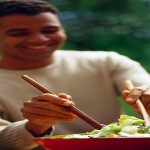
The nation is in a state of shock and outrage over Wednesday’s riotous siege on the U.S. Capitol Building by supporters of President Donald Trump, and there could be still worse to come before the Jan. 20 inauguration of President-elect Joe Biden. So, taking care of your mental and physical health will be important in the coming days of trial and tribulation in the United States, American Psychiatric Association President Dr. Jeffrey Geller said Thursday. That’s even more crucial if you’re a parent, Geller added. “You want to reassure the child that they are safe, that home is safe and, far more important, that you’re taking care of yourself,” Geller said. “It’s very hard to take care of your child if you’re not taking care of yourself.” People can help ease their personal stress by sticking to a normal daily routine, sleeping well, staying hydrated, eating healthy, exercising and participating in self-calming techniques like meditation or yoga, Geller said. Even though they seem tempting in times of stress, you should try to avoid the use of alcohol, drugs or tobacco, Geller added. Instead, have conversations with the people in your life and limit your use of social media, he suggested. “You want to reach out to the people with whom you have a close relationship,” Geller said. “Better a few people with a close relationship… read on > read on >





















-300x200.jpg)










